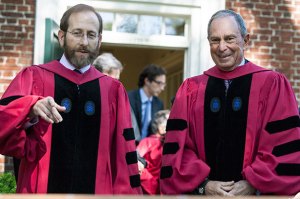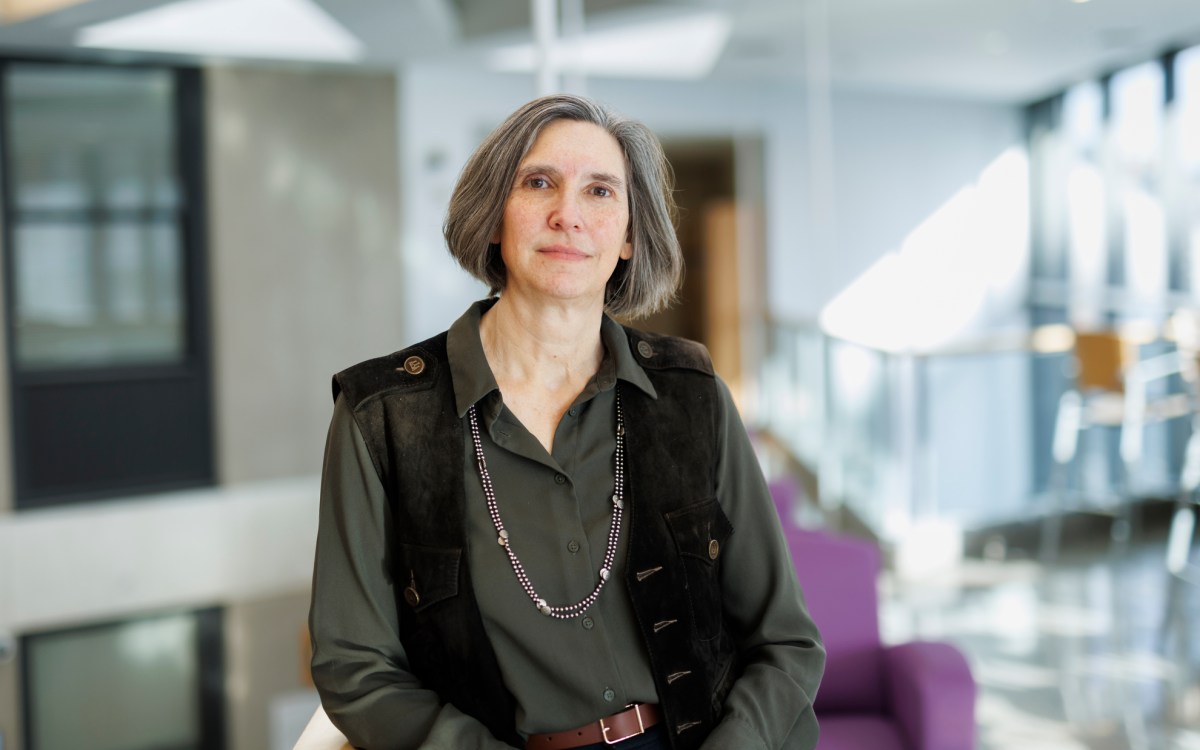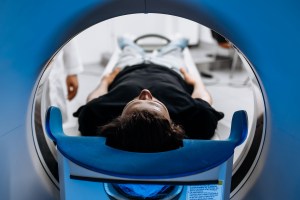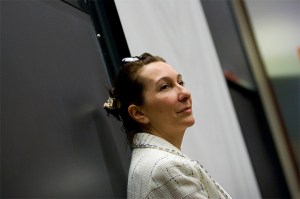All articles
-
Arts & Culture
Winning night for A.R.T.
Two shows with ties to Harvard won Tony Awards and kept the American Repertory Theater’s winning streak alive.
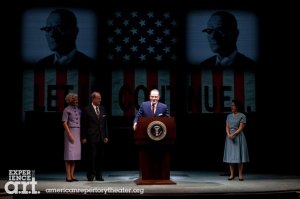
-
Campus & Community
James Newton Butler
At a Meeting of the Faculty of Arts and Sciences on October 1, 2013, the Minute honoring the life and service of the late James Newton Butler, Gordon McKay Professor of Applied Chemistry, Emeritus, was placed upon the records. Professor Butler was acclaimed for his research on ionic equilibrium and pelagic tar in the North…
-
Campus & Community
Nadav Safran
At a Meeting of the Faculty of Arts and Sciences on May 6, 2014, the Minute honoring the life and service of the Nadav Safran, Murray A. Albertson Professor of Middle Eastern Studies,Emeritus, was placed upon the records. Professor Safran was a wide-ranging scholar of the politics of the Middle East with a deep sensitivity…
-
Nation & World
For good policy, forget party
Collaboration and inclusion, even of political opponents, is critical to forging successful health policy, former Massachusetts Gov. Michael Dukakis told a group of health ministers from around the world gathered at Harvard.
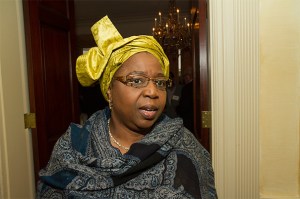
-
Campus & Community
Abramson Award to Spirling, Combes
Arthur Spirling, the John L. Loeb Associate Professor of the Social Sciences in the Government Department, and Stacey Combes, associate professor of organismic and evolutionary biology, are this year’s winners of the Roslyn Abramson Award.

-
Nation & World
Planning for disruption
Harvard Business School Professor Clay Christensen spoke about disruption in higher ed as a keynote speaker at the Harvard IT Summit.
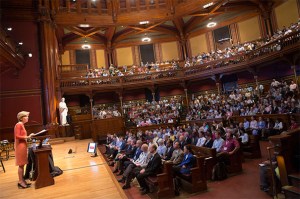
-
Health
Reading shapes
A team of Harvard researchers has demonstrated that a shared developmental mechanism in songbirds is responsible for generating tremendous variability in their beaks, and is also a control on what kind variation can be produced.
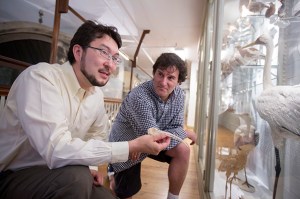
-
Health
Unmasking a viral invader
A study from Harvard Medical School provides the first comprehensive description of how cytomegalovirus, or CMV, hijacks human cells and suggests entirely new ways to combat the infection.
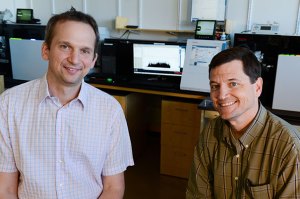
-
Health
Natural hormone molds leaner bodies in mice
A natural hormone that is increased by physical exercise and by exposure to cold improves blood sugar control, suppresses inflammation, and burns fat to mold leaner bodies in mice, report scientists at the Harvard-affiliated Dana-Farber Cancer Institute.

-
Campus & Community
Harvard University: Year in Pictures 2013-2014
Harvard University captures some of its most memorable moments from the 2013-14 academic year.
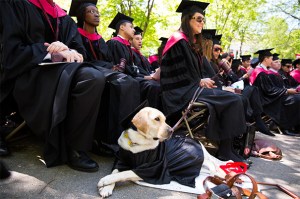
-
Campus & Community
Insights for high school students
Three Cambridge Rindge and Latin School students who interned in Harvard’s marine biology labs during the spring recently shared their semester-long projects with their teachers, Harvard mentors, and family members.
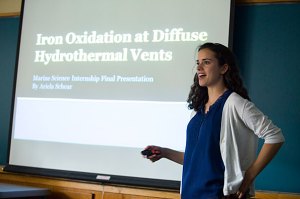
-
Science & Tech
Taking stock of sustainability efforts
A conference co-hosted by Harvard looked at the future of sustainability efforts at universities and other large institutions.
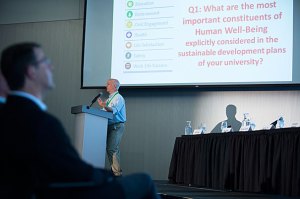
-
Nation & World
Meeting of the minds
Harvard Business School’s disruptive innovation guru Clayton Christensen uses crowdsourcing to accelerate the evolution of his latest theory on corporate investment decisions.
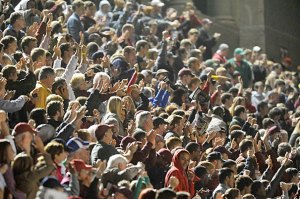
-
Science & Tech
Breathing easier over electricity
The Environmental Protection Agency’s release of draft regulations that would reduce carbon dioxide emissions from power plants by 30 percent from 2005 levels by 2030 will have a significant impact on human health, Harvard analysts say.

-
Campus & Community
Nine Cabot Fellows named
Nine professors in Harvard’s Faculty of Arts and Sciences have been named Walter Channing Cabot Fellows.
-
Science & Tech
‘Godzilla of Earths’ discovered
Astronomers announced Monday that they have discovered a new type of planet — a rocky world weighing 17 times as much as Earth. This planet is all solids and much bigger than previously discovered “super-Earths,” making it a “mega-Earth.”

-
Campus & Community
‘So that represented my own little rebellion’
Interview with Professor Stephen Greenblatt as part of the Experience series.

-
Nation & World
Rewarding restlessness
Five seniors will soon head to foreign shores as part of a fellowship program that emphasizes experience over work and independence over comfort.
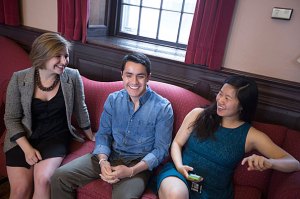
-
Campus & Community
More than just a job
For more than 15 years, Harvard’s Summer Youth Employment Program has been helping local teens develop positive work habits, establish networks, and gain motivation and real-world experience, as well as earn a paycheck.
-
Nation & World
Women at war
Three veteran war correspondents talk about the increasingly dangerous job of reporting from conflict zones.
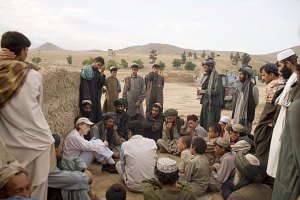
-
Campus & Community
HAA announces new Overseers
The president of the Harvard Alumni Association announced the results of the annual election of new members of the Harvard Board of Overseers. The results were released at the annual meeting of the association following the University’s 363rd Commencement.
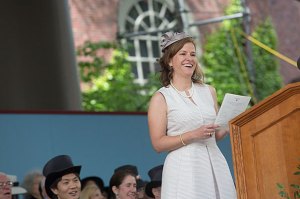
-
Campus & Community
Faust says women should press ahead
Harvard President Drew Faust was honored with the Radcliffe Medal on Friday during Radcliffe Day, an annual Commencement week celebration that unites hundreds of fellows, alumnae and friends for a day of discussions, luncheon and medal ceremony. The day also marked the Radcliffe Institute for Advanced Study’s 15-year anniversary.
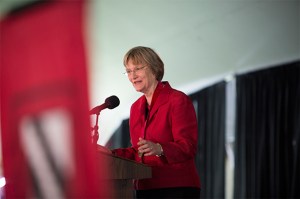
-
Campus & Community
One ending, many beginnings
Harvard’s 363rd Commencement brought together students, thousands of spectators, and even the “Queen of Soul.”
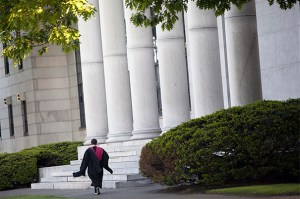
-
Campus & Community
Spark of science
Local students visited the Harvard campus to celebrate their partnership with the School of Engineering and Applied Sciences, and to present their final science and engineering projects.
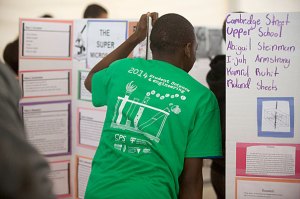
-
Campus & Community
A lifelong Harvard perspective
The Gazette sat down with Robert Reischauer, senior fellow of the Harvard Corporation, to talk about his time on the governing boards and challenges facing Harvard. He completes his board service on June 30.
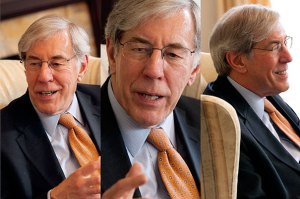
-
Campus & Community
‘There’s no easy time to say hard things’
Delivering Harvard’s Commencement address, former New York City Mayor Michael Bloomberg called on the Class of 2014 to safeguard free speech and inquiry, rights that he said are under attack both in Washington, D.C., and on college campuses across the country.
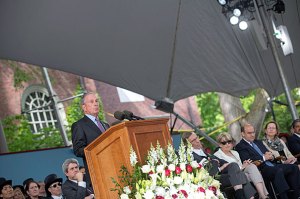
-
Campus & Community
A sustainable 363rd Commencement
Harvard’s efforts in sustainability are reflected during its 363rd Commencement.
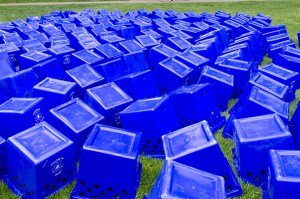
-
Campus & Community
Reflections on a half century at Harvard
John P. “Jack” Reardon Jr. ’60, who will step down as Harvard Alumni Association executive director in July, shares his memories as he looks back on 50 years at Harvard University.
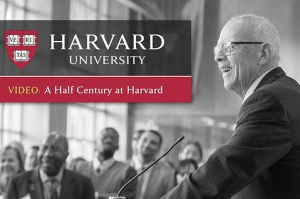
-
Campus & Community
Snapshots of a sun-splashed day
A roundup of capsule stories and photos surrounding Harvard’s 363rd Commencement.
